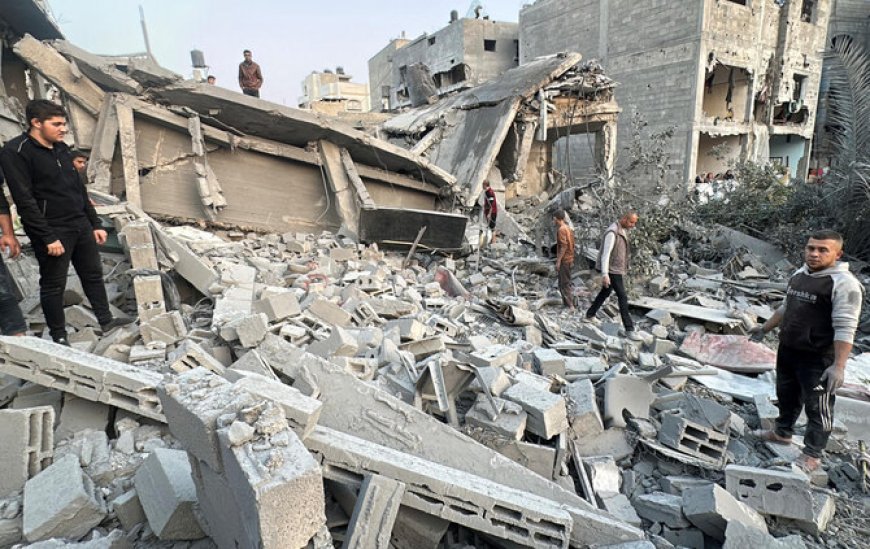Complicating Conflict in Gaza Calls Attention to Western Silence
Reports show that scores of Palestinian people, including families with children, were killed or injured in a catastrophic airstrike in Gaza's Jabalia refugee camp, therefore adding still another sad chapter to the continuing conflict.

Reports show that scores of Palestinian people, including families with children, were killed or injured in a catastrophic airstrike in Gaza's Jabalia refugee camp, therefore adding still another sad chapter to the continuing conflict. The assault, which happened at dawn and targeted a heavily inhabited residential structure, has highlighted mounting worries over the scope of civilian losses. Palestinian medics claim that at least thirty people lived in the structure, many of them were killed right away. Disturbing images of rows of dead covered in blankets in a hospital yard, documenting the aftermath of an incident that has left the Palestinian community reeling, are floating on social media. Although the claimed death count has already caused indignation even though these films cannot be instantly confirmed.
As the battle gets more intense, the Israel Defense Forces (IDF) have defended their activities in northern Gaza, particularly focusing on regions like Jabalia, Beit Lahiya, and Beit Hanoun as required for eradication of Hamas. Claiming that Israeli operation has effectively killed hundreds of Hamas fighters, they contend that these areas provide launching grounds for their continuous attacks. According to the Israeli government, national security of its country depends on these acts. Local emergency services in Gaza, meanwhile, have said that these raids seriously hinder their operations and make it difficult to fairly estimate the death figure.
Human rights defenders and observers have sharply criticised the Western response for conspicuously lacking public criticism or pleas for moderation against Israel's military actions in Gaza. Western countries have mostly refrained from exerting pressure on Israel to adopt more subdued strategies, despite growing documentation of great civilian losses and worsening humanitarian conditions. Many see this quiet as tacit endorsement of Israel's approach, which is driving demands for a more humanitarian-oriented and balanced reaction by world leaders. Critics contend that Western countries are essentially undervaluing the rights and safety of Palestinian citizens by not making Israel responsible for civilian losses.
In other areas of Gaza, including the Sabra neighborhood of Gaza City, where a separate bombing killed Welfare Ministry official Wael Al-Khour and seven members of his family, the situation has also worsened. The Palestinian territory has been rocked by this incident, as officials and people doubt the justification for attacking civilian dwellings under the cover of counter-terrorism initiatives. Although the IDF has said it is looking at these particular events, many believe the consistent death of civilian lives points to a disproportionate and terrible application of force.
The continuous violence and humanitarian disaster have put Western countries in a difficult situation that questions their dedication to human rights. Israel claims to be focusing on extremist threats, but the large civilian death toll begs urgent ethical questions that many feel Western partners should address more openly. The situation runs even more risk spiraling without a change in international dialogue and a stronger posture on defending civilians, with disastrous results for the people of Gaza.













































